Aluminum Solar Panel Frame
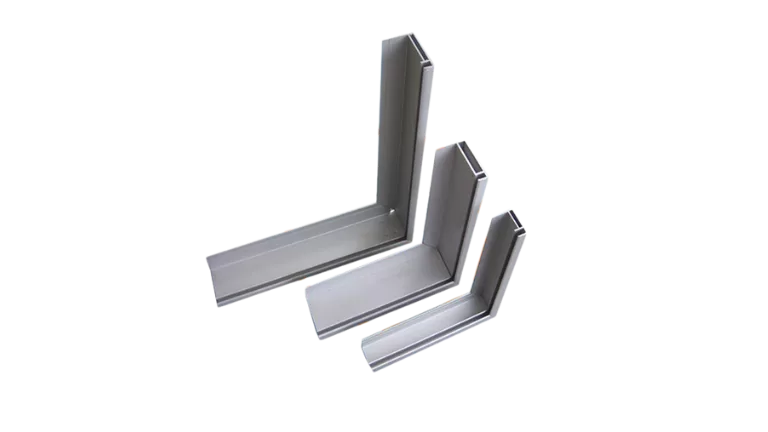
Aluminium solar panel frames are essential components of photovoltaic systems, providing structural support while securing and protecting solar panels from mechanical damage and environmental factors like moisture infiltration. Aluminium’s lightweight, high strength, corrosion resistance, and ease of processing make it the ideal material for these frames, which also enhance system durability by resisting wind, snow loads, and seismic forces. Their clean, minimalist design further supports seamless architectural integration.
HTS-ALU is a leading aluminium extrusion manufacturer in China with 40 advanced production lines and comprehensive surface treatment capabilities. The company produces high-quality aluminium profiles, including durable and aesthetically appealing PV panel frames that meet international standards.
Advantages of Aluminum PV Panel frame
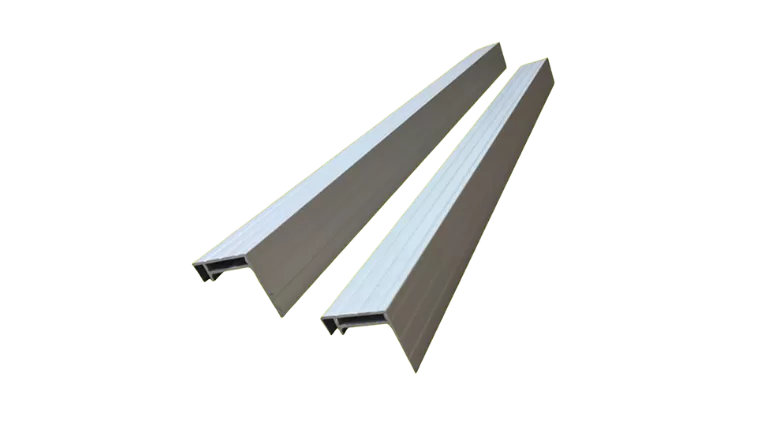
Lightweight and High Strength
Aluminium solar panel frames are constructed from lightweight yet strong materials, making them easy to handle and install without compromising durability. Their high strength provides reliable structural support for solar panels, ensuring they remain stable even in challenging environmental conditions such as strong winds or heavy snow. This combination of lightweight and strength reduces overall system weight while maintaining excellent performance and long-term reliability.
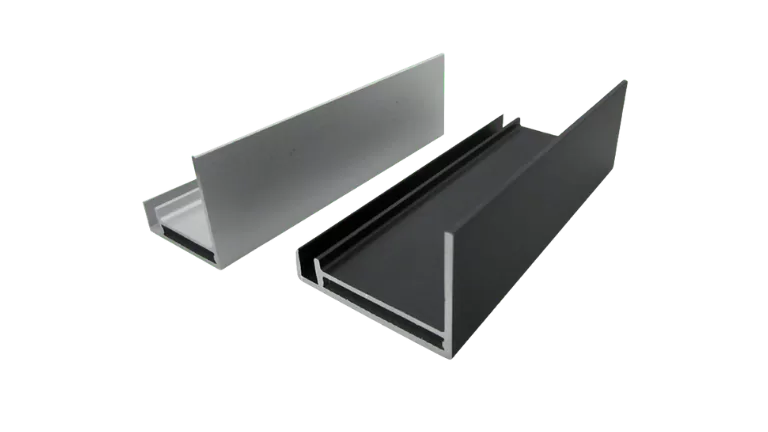
Corrosion-Resistant and Durable
With natural corrosion-resistant properties, aluminium solar panel frames are ideal for outdoor applications, where they must endure exposure to rain, humidity, and harsh environmental elements. Advanced surface treatments such as anodizing or powder coating further enhance their durability, protecting the frames from oxidation and extending their lifespan. This makes them a dependable choice for photovoltaic systems deployed in diverse climates and regions.
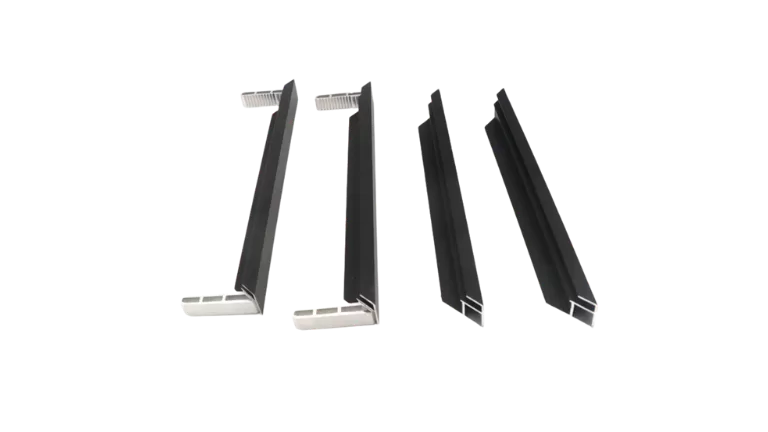
Flexible and Stylish Design
Aluminium’s versatility makes it easy to customize solar panel frames to fit specific applications or architectural requirements. The material’s flexibility allows for precise fabrication, ensuring compatibility with various solar panel types and mounting systems. Additionally, aluminium frames can be treated to achieve sleek finishes and clean designs, enabling the integration of solar panels into modern buildings without compromising aesthetics. This makes them a popular choice for both residential and commercial solar energy projects.
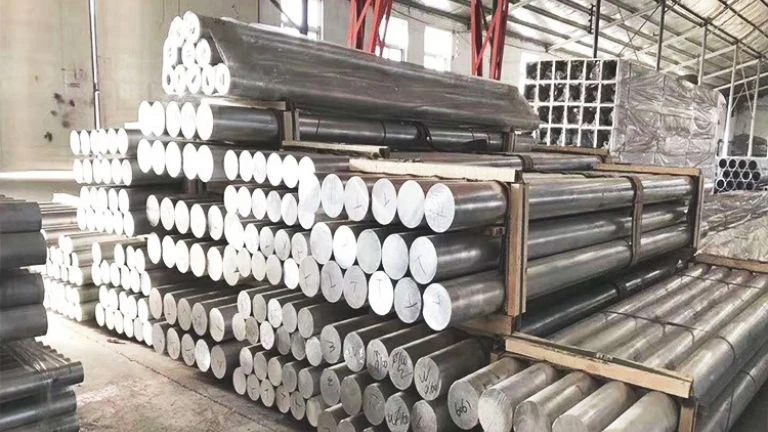
Material Selection for Aluminium Solar Panel Frames
The most commonly used material for aluminium solar panel frames is 6063 T5 alloy, valued for its excellent corrosion resistance, good strength, and ease of extrusion. It is widely preferred for its smooth surface finish and reliable performance in outdoor environments. Other options, such as 6061 T6 or 6005 T5, are used when higher mechanical strength or specific structural requirements are needed, offering versatility for demanding applications.
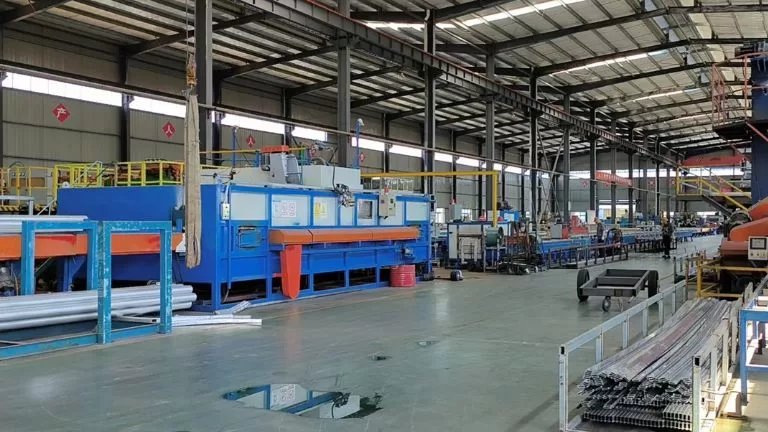
Extrusion Process for Aluminium Solar Panel Frames
The extrusion process for aluminium solar panel frames involves pushing heated aluminium billets through a precisely engineered die to create continuous profiles with the required shape. This method is highly efficient, offering excellent dimensional accuracy, low material waste, and the ability to produce complex cross-sections. It is especially suited for large-scale manufacturing, ensuring consistent quality while allowing customization to meet different design requirements for solar panel systems.
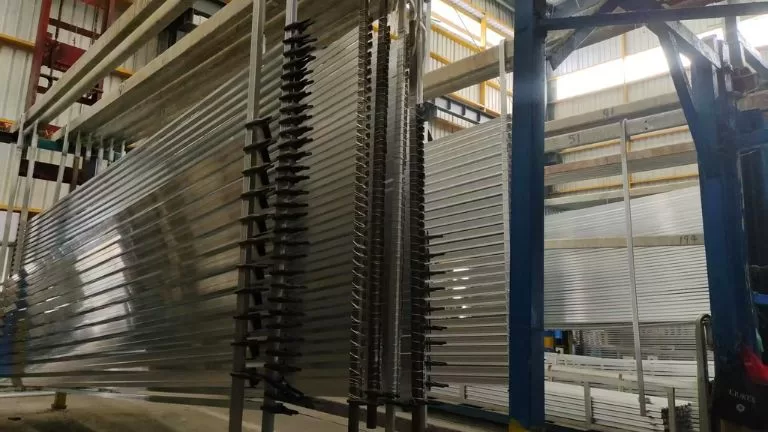
Surface Treatment for Aluminium Solar Panel Frames
The surface treatment of aluminium solar panel frames typically includes processes such as anodizing, powder coating, and electrophoresis. These treatments enhance corrosion resistance, improve durability, and provide an aesthetically pleasing finish. Anodizing creates a protective oxide layer, powder coating applies a uniform protective film, and electrophoresis ensures a smooth and consistent coating. These methods are highly efficient, ensuring the frames withstand harsh environmental conditions while maintaining a high-quality appearance.
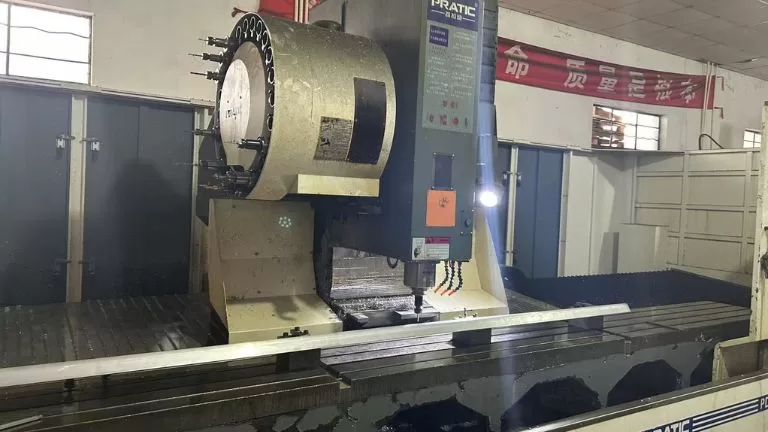
Machining for Aluminium Solar Panel Frames
The processing of aluminium solar panel frames involves precise cutting, drilling, and slotting to meet specific assembly and functional requirements. Cutting ensures the profiles are sized accurately, while drilling and slotting allow the integration of screws, fasteners, and fittings for secure connections. These processes are performed with high precision using advanced machinery to ensure structural integrity and seamless assembly.
Aluminium Solar Frames Specifications
| Category | Specification/Option | Details |
|---|---|---|
| Material | Alloy | 6063, 6061, 6005, or other aluminum alloys |
| Temper | T5, T6 | |
| Surface Finish | Anodizing, powder coating, electrophoresis, polishing, mill finish | |
| Dimensions | Profile Size | Customizable width, height, and thickness |
| Length | Adjustable to fit specific solar panel systems | |
| Weight | Optimized for strength and ease of installation | |
| Design Features | Shape | Rectangular, U-shaped, or other customized geometries |
| Mounting Configuration | Grooves, holes, brackets for rails and installation systems | |
| Color | Customizable colors (powder coating or anodizing) | |
| Performance | Corrosion Resistance | Enhanced protection for harsh environments |
| Mechanical Strength | Designed to withstand heavy wind, snow, or seismic loads |
Custom Aluminium Solar Frames from Us
Enhance your solar panel systems with premium custom aluminum frames crafted with precision and care by HTS-ALU. As leaders in aluminum manufacturing, we offer top-tier solutions that are built to last. Our state-of-the-art production facilities are equipped with advanced machinery, including high-precision extrusion presses, CNC machining centers, and automated surface treatment lines, ensuring every product meets stringent industry standards.
At HTS-ALU, we prioritize quality and efficiency. Our highly skilled team leverages cutting-edge technology and years of expertise to produce frames that are lightweight, corrosion-resistant, and perfectly tailored to your specifications. Whether you require specific dimensions, intricate designs, or specialized surface finishes like anodizing or powder coating, we have the infrastructure and expertise to deliver exceptional results, even for large-scale projects.
Contact HTS-ALU today to discuss your project requirements, request a custom quote, and experience the difference of working with a trusted leader in aluminum frame manufacturing!
Aluminum Profile Processing Capabilities
As a leading aluminum extrusion manufacturer based in China, we are committed to providing high-quality aluminum profiles for a wide range of industries. Our capabilities start with custom mold design and manufacturing, ensuring precise extrusion shapes that meet the specific needs of our clients. From raw extrusion to surface finishing and advanced machining, our fully integrated manufacturing processes enable us to deliver aluminum profiles that meet exacting standards and cater to the unique requirements of each project.
 Our production facility houses over 40 advanced extrusion lines, featuring cutting-edge equipment such as a powerful 6000-ton extrusion press. This enables the creation of aluminum profiles in various sizes and forms, ranging from standard industrial applications to specialized products like thermal break profiles for high-end doors and windows. The flexibility of our extrusion capability ensures we can cater to a broad spectrum of industries, including construction and precision engineering.
Our production facility houses over 40 advanced extrusion lines, featuring cutting-edge equipment such as a powerful 6000-ton extrusion press. This enables the creation of aluminum profiles in various sizes and forms, ranging from standard industrial applications to specialized products like thermal break profiles for high-end doors and windows. The flexibility of our extrusion capability ensures we can cater to a broad spectrum of industries, including construction and precision engineering.
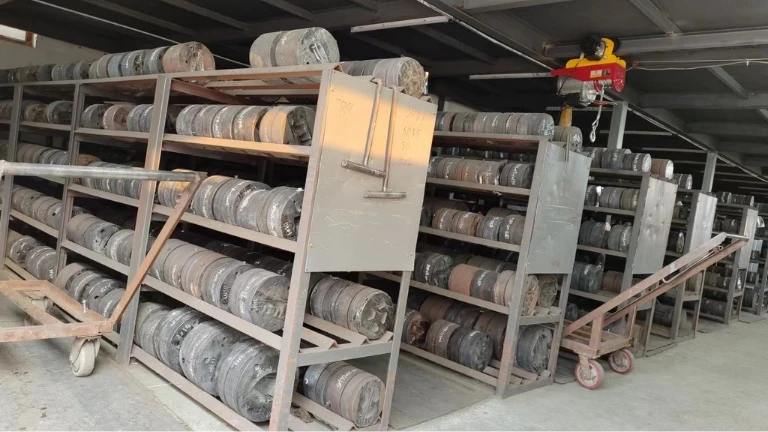 We possess the expertise to design and produce extrusion molds in-house, ensuring precision and efficiency in aluminum profile manufacturing. Our experienced team works closely with clients to develop custom molds based on drawings or samples, ensuring optimal performance for their specific requirements. Typically, the mold production process takes about 7 days, after which we provide samples for client confirmation before beginning full-scale production.
We possess the expertise to design and produce extrusion molds in-house, ensuring precision and efficiency in aluminum profile manufacturing. Our experienced team works closely with clients to develop custom molds based on drawings or samples, ensuring optimal performance for their specific requirements. Typically, the mold production process takes about 7 days, after which we provide samples for client confirmation before beginning full-scale production.
 For superior durability and visual appeal, we offer various surface treatment solutions. These include anodizing for added corrosion resistance, powder coating for vibrant finishes, fluorocarbon coating for enhanced weather resistance, and wood grain transfer technology for elegant, natural-looking designs. These treatments are customizable to fit specific aesthetic and functional needs, ensuring that profiles not only perform well but also look exceptional.
For superior durability and visual appeal, we offer various surface treatment solutions. These include anodizing for added corrosion resistance, powder coating for vibrant finishes, fluorocarbon coating for enhanced weather resistance, and wood grain transfer technology for elegant, natural-looking designs. These treatments are customizable to fit specific aesthetic and functional needs, ensuring that profiles not only perform well but also look exceptional.
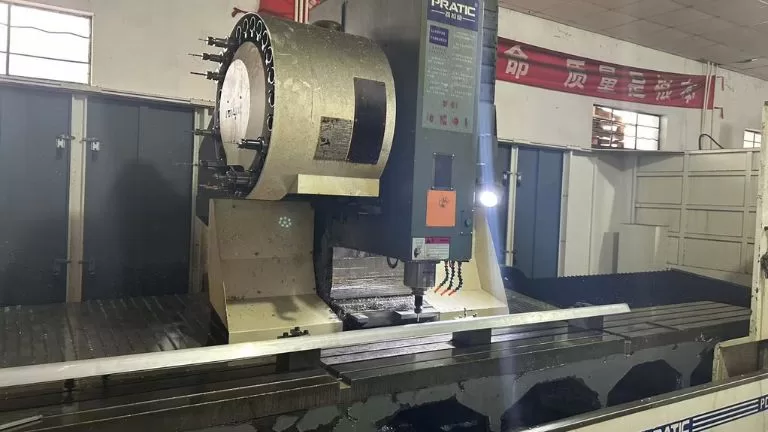
To provide complete aluminum profile solutions, we offer extensive further processing capabilities. Our services include CNC machining, milling, threading, drilling, precision cutting, punching, welding, and assembly. This range of fabrication options allows us to deliver ready-to-use profiles tailored to exact project specifications, offering unmatched flexibility and reliability to our customers.
RFQ of Solar Frame Aluminum Profile
HTS New Materials, based in Jiangxi Province, China, is a leading aluminum extrusion manufacturer with over 40 advanced production lines and powerful equipment, including a 6000-ton extrusion press. We produce a wide range of aluminum profiles for industries such as construction, industrial applications, and high-end doors and windows, including thermal break profiles. Our services extend to comprehensive surface treatments like anodizing, powder coating, fluorocarbon coating, and wood grain transfer, as well as advanced machining and fabrication capabilities such as CNC machining, drilling, and welding. Committed to quality and innovation, we deliver tailored aluminum solutions to meet the diverse needs of clients globally.
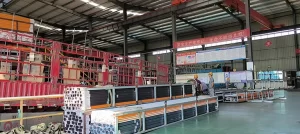
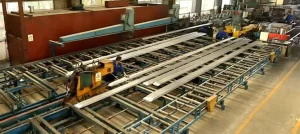
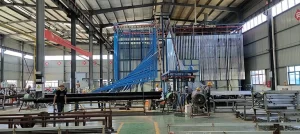
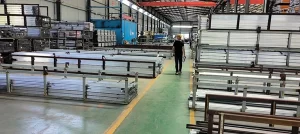

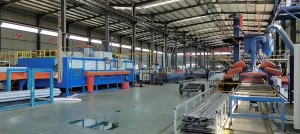
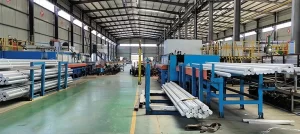
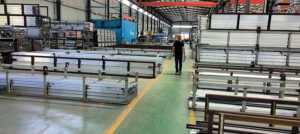
The installation of Aluminum Solar Panel Frames using aluminum mounting systems is a crucial process for ensuring the stability, durability, and efficiency of solar energy systems. Aluminum mounting systems are lightweight, durable, and corrosion-resistant, making them an ideal choice for securely attaching solar panel frames. Below is a detailed guide focused on the process of installing Aluminum Solar Panel Frames with aluminum mounting systems.
1. Preparation and Planning
Survey the Installation Site:
- Identify the best location with maximum sun exposure (e.g., south-facing roofs in the northern hemisphere or ground-mounted open spaces).
- Ensure the site is free of obstacles such as trees, buildings, or other shading elements.
Check Structural Integrity:
- Verify that the roof, ground, or other installation surfaces can support the weight of the aluminum mounting system and solar panels.
Gather the Equipment and Tools:
- Aluminum Solar Panel Frames
- Aluminum Mounting Rails
- End Clamps and Mid Clamps
- Roof Hooks or Ground Brackets (depending on the installation type)
- Screws, bolts, and fasteners made of stainless steel for durability
- Tools: Drill, wrench, screwdriver, level, measuring tape, safety harness, etc.
2. Installing the Aluminum Mounting Rails
For Roof-Mounted Systems:
- Install roof hooks by attaching them to the roof beams beneath the tiles (for tiled roofs) or directly to the roof surface (for metal and flat roofs). The hooks serve as the base support for the mounting rails.
- Arrange the hooks along rows where the aluminum rails will be mounted.
- Attach the aluminum mounting rails to the roof hooks using bolts. Ensure the rails are properly aligned, leveled, and angled for maximum sunlight exposure.
For Ground-Mounted Systems:
- Install ground brackets or adjustable legs to provide a sturdy foundation for the mounting system.
- Secure the aluminum rails to the brackets using bolts. Ensure the rails are level and spaced appropriately to the dimensions of the solar panel frames.
- Adjust the height and tilt angle of the system (typically 30–45 degrees depending on the location) to optimize energy generation.
3. Mounting the Aluminum Solar Panel Frames
- Place the Aluminum Solar Panel Frames onto the aluminum rails.
- Secure the frames using mid clamps (for connecting adjacent panels) and end clamps (for securing the panels at the edges of the rails).
- Tighten the clamps with the appropriate torque to ensure that the frames are securely fastened to the rails.
- Ensure consistent spacing between the frames to allow sufficient airflow and to reduce overheating of the panels.
4. Electrical Wiring Setup
- Route the electrical wiring along the mounting rails, attaching the wires using cable clips or ties to prevent sagging or damage.
- Connect the solar panels in a series or parallel configuration as per the system design.
- Protect the wiring with conduit or other suitable weatherproof materials.
5. Final Inspection and System Testing
- Check all connections, ensuring the frames and rails are securely fastened with no loose bolts or clamps.
- Verify that the panels are properly angled and aligned to maximize sunlight exposure.
- Test the electrical connections to ensure that the panels are functioning as expected.
- Walk away from the system without risking loose components due to improper fastening.
| Application Scenarios | ||||
|---|---|---|---|---|
| 6063 Aluminum Alloy | High magnesium and silicon content, excellent corrosion resistance and machinability. | – Exceptional corrosion resistance<br>- High strength-to-weight ratio<br>- Good surface finish after treatment<br>- Easy to extrude into complex shapes | – Slightly lower strength than 6061<br>- Not ideal for heavy loads | Solar panel frames, outdoor applications |
| 6061 Aluminum Alloy | Higher hardness and strength, superior structural integrity. | – High strength<br>- Excellent weldability<br>- Strong wind and snow load resistance<br>- Good corrosion resistance | – Surface finish slightly inferior to 6063<br>- Slightly higher processing cost | Industrial solar frames, harsh outdoor environments |
| 1050 Aluminum Alloy | High-purity aluminum (99.5% content) with excellent corrosion resistance and conductivity. | – Outstanding corrosion resistance<br>- Excellent thermal and electrical conductivity<br>- Soft and easy to process | – Low strength<br>- Not suitable for high-load support<br>- Limited surface treatment options | Lightweight frame applications, single panel edges |
| 3003 Aluminum Alloy | Manganese-based, non-heat-treatable alloy with high ductility and corrosion resistance. | – Strong corrosion resistance<br>- Good formability<br>- Cost-effective | – Lower strength than 6061 and 6063<br>- Insufficient hardness, prone to deformation | Indoor use or low-load frame sections |
| 7075 Aluminum Alloy | Zinc-heavy alloy with extremely high strength, comparable to certain steels. | – Superior strength<br>- Excellent fatigue resistance<br>- High impact resistance | – Poor corrosion resistance<br>- Expensive<br>- Difficult to machine | Special solar structures, high-load applications |
The heat treatment of aluminum extrusions determines their mechanical properties, strength, and suitability for specific applications. Among the various heat treatment methods, T5, T6, and T66 are the most commonly used. Here’s an in-depth look:
| Heat Treatment State | Cooling Method | Strength | Key Features and Benefits | Applications |
|---|---|---|---|---|
| T5 | Air cooling (fan) | Moderate | Adequate strength, good dimensional stability, used for architectural purposes. | Windows, doors, curtain walls, building structures. |
| T6 | Water quenching (fast) | High | Higher strength and hardness, ideal for industrial and structural uses. | Automotive, aerospace, machinery, transport parts. |
| T66 | Water quenching (fast) | Very high | Optimized mechanical properties for higher strength and performance demands. | Automotive, rail transportation, high-end machinery. |
Other Heat Treatment States
- T4: Solution heat-treated and naturally aged. Used in applications requiring intermediate strength and enhanced formability.
- T7: Overaged for better stress-corrosion resistance, often used for aerospace and marine purposes.
- O (Annealed): Very soft condition suitable for extensive forming or bending requirements.
- F (As-Fabricated): No heat treatment applied, used in non-critical applications with low strength requirements.
Aluminum extrusions undergo various surface treatments to enhance aesthetics, corrosion resistance, and functionality. Here are the common surface treatment methods used in the industry:
Main Surface Treatment Methods
Anodizing (Oxidation)
- Process: A controlled electrochemical process that forms a protective oxide layer on the aluminum surface.
- Features:
- Provides a durable, corrosion-resistant, and environmentally friendly finish.
- Produces a metallic finish with a variety of natural tones (e.g., silver, black, bronze).
- Improves surface hardness and protects against scratching.
- Applications: Architectural frames, decorative profiles, heat sinks.
Electrophoresis Coating (E-Coating)
- Process: After anodizing, the aluminum is coated with paint using an electrochemical process.
- Features:
- Enhances corrosion resistance and offers a smooth, glossy finish.
- Provides more color and texture variation compared to anodizing alone.
- Applications: Furniture profiles, indoor architectural components.
Powder Coating
- Process: Electrostatic application of powder paint, followed by curing under high temperature to form a solid coating.
- Features:
- Wide variety of colors and textures.
- Excellent weather resistance and corrosion protection.
- Cost-effective and highly versatile.
- Applications: Outdoor frames, fences, railings, general industrial use.
PVDF Coating (Polyvinylidene Fluoride)
- Process: A specialized fluoropolymer coating is applied in multiple layers, commonly over a pretreated surface.
- Features:
- Exceptional weather resistance and UV stability.
- Highly durable, resistant to fading, chalking, and chemical damage.
- Ideal for long-term outdoor use.
- Applications: Curtain walls, high-performance architectural facades.
Wood Grain Transfer Printing
- Process: A heat-transfer printing process that applies a wood grain effect onto a pre-coated aluminum surface.
- Features:
- Mimics the appearance of wood while retaining aluminum’s durability.
- Lightweight and weather-resistant alternative to natural wood.
- Applications: Furniture, decorative coverings, outdoor panels.
Film Lamination
- Process: Adhesive application of a protective or decorative film onto the aluminum surface.
- Features:
- Provides a glossy, textured, or patterned finish.
- Often used for applications requiring specific textures like marble or leather effects.
- Applications: Interior decor, windows.
Pre-Treatment Processes
Prior to surface treatment, the aluminum surface can be pre-processed for specific textures or finishes:
Brushing/Polishing
- Removes surface imperfections and creates a smooth, reflective finish.
- Often used for decorative purposes.
Sanding/Grinding
- Produces a matte or satin finish by applying abrasives.
Shot Blasting/Sandblasting
- Sprays abrasives at high velocity to create a textured surface, often used before anodizing for a uniform appearance.
Stretching and Tension Leveling
- Straightens the aluminum profile and improves shape accuracy after extrusion.
Cost and Durability Comparison Table
| Treatment Method | Process Cost | Surface Durability | Weather Resistance | Applications |
|---|---|---|---|---|
| Anodizing (Oxidation) | Medium | Very Durable | High | Architectural frames, industrial parts. |
| Electrophoresis (E-Coating) | Medium-High | Durable | Medium | Furniture, indoor parts, decorative uses. |
| Powder Coating | Medium | Highly Durable | High | Outdoor frames, industrial fixtures. |
| PVDF Coating | High | Extremely Durable | Excellent | Curtain walls, high-end exteriors. |
| Wood Grain Printing | Medium | Moderate (topcoat dependent) | Medium | Decorative panels, furniture. |
| Film Lamination | Low-Medium | Moderate | Low | Indoor decorations, windows. |
| Brushing/Sandblasting (Pre-Treatment) | Low | Not Applicable (Preparation only) | N/A | Preparation for further treatment. |
. Anodizing (Oxidation)
- Common Colors:
Natural silver
Black
Champagne
Light bronze
Dark bronze
Gold
2. Electrophoresis Coating (E-Coating)
- Common Colors:
Black
Champagne
Light bronze
Dark bronze
Custom metallic colors
3. Powder Coating
- Colors:
Can match any color based on the RAL color chart.
Offers textures like matte, gloss, satin, and custom finishes.
4. PVDF Coating (Polyvinylidene Fluoride)
- Colors:
Also customizable using the RAL color chart.
High-end finishes with matte or glossy effects.
5. Wood Grain Transfer Printing
- Colors and Patterns:
Mimics various wood types (e.g., oak, walnut, teak, mahogany).
Custom patterns available based on provided samples.
6. Film Lamination
- Colors and Patterns:
Includes textures like marble, leather, and solid colors.
Custom finishes and patterns based on provided samples.
Pre-Treatment Options (Impact on Final Color)
- Brushing/Polishing: Produces smooth or reflective metallic surfaces.
- Sandblasting: Adds a rough, matte texture before the final surface treatment.
We provide a wide range of machining services for aluminum extrusions to meet specific requirements. These include cutting off/section removal, slotting, drilling holes, tapping threads, bending, and localized stamping to create deformations. For example, we can trim extruded profiles to custom lengths, mill precise grooves, create threaded holes for fasteners, bend profiles into specific shapes, or apply localized stamping to achieve custom forms or deformation.
In addition to these processes, we also offer TIG/MIG welding to join aluminum components for a solid structure. Furthermore, our services include assembly of common accessories, such as brackets, corner connectors, screws, hinges, end caps, and rubber seals, providing complete and ready-to-install profile solutions tailored to your project needs. This ensures that we can handle everything from simple cuts to highly customized fabrication and assembly, all with precision and efficiency.
For custom aluminum extrusion projects, we accept a variety of drawing formats, including CAD files, STEP files, and PDF files. However, for extrusions that require additional machining processes, it’s recommended to provide STEP files, as they ensure precise 3D modeling for machining accuracy.
While PDF files are acceptable, converting them into CAD drawings may result in the loss of certain details, requiring us to manually redraw the design, which could increase lead time. For the fastest and most accurate quotation, we recommend providing CAD files (e.g., DWG/DXF) and STEP files to ensure efficient design evaluation and pricing.
Mold fees are an essential part of the custom aluminum extrusion process. Since every order requires a uniquely designed mold tailored to specific requirements, these molds cannot be used for other products. Therefore, the mold fee is necessary and non-negotiable.
We require 100% upfront payment of the mold fee before mold development begins to ensure timely production. However, as a token of appreciation for your support, we offer a refund of the mold fee or equivalent discounts once the order reaches a certain production volume. Specific policies can be discussed based on your order volume and collaboration details.
Our minimum order quantity (MOQ) varies depending on the size of the product. For smaller-sized products, the MOQ is typically 500kg, while for larger-sized products, it is 2 tons.
We will specify the exact MOQ requirements during the quotation process. If your order quantity does not meet the MOQ, we can still arrange production, but an additional fee will be applied to cover mold preheating and production setup time. Rest assured, this extra fee will be reasonable, and we aim to keep it as minimal as possible to ensure smooth cooperation.
Packaging can be customized according to your needs. Options include using protective film or paper to separate and protect the surface, or foam film for additional surface protection. Products can be palletized or packed into cartons, and the quantity per pallet or carton can be specified by the customer.
The standard packaging involves bundling several pieces together with plastic wrap and then securing them onto pallets. Any packaging requirements beyond the standard will be accommodated, and the associated costs will be clearly provided to the customer.
Mold production typically takes 7 days. After the sample is confirmed, producing a full container load of 26 tons generally requires 14 days for extrusion alone. If surface treatment is required, an additional 3 days will be needed. For machining, extra time will be required depending on the complexity and volume of the machining work. The exact additional time for machining will be determined based on the specific processing requirements.
Aluminum profiles are naturally corrosion-resistant due to the formation of a thin, protective oxide layer when exposed to air or water. This oxide layer is stable and self-repairing, meaning that even if the surface is scratched or cut (such as at exposed ends or during processing), the aluminum will not rust or corrode like iron or steel. Instead, the exposed areas will quickly form a new oxide layer, providing continuous protection against further oxidation.
With proper design, installation, and maintenance, aluminum profiles can last for decades, even in challenging environments. For example, untreated aluminum can easily withstand 20-30 years in outdoor applications, while profiles with surface treatments like anodizing or powder coating can last even longer, often exceeding 50 years. This makes aluminum an excellent choice for applications where durability and long-term performance are essential.
The price of aluminum profiles consists of several components: raw material costs, extrusion processing fees, surface treatment fees, machining costs, and additional packaging fees. Among these, the cost of aluminum as a raw material tends to fluctuate frequently, while other fees remain relatively stable. Due to these fluctuations, our quotations are typically valid for 7 days.
Pricing can be structured in different ways depending on the product and requirements. It can be calculated by weight (e.g., cost per ton), by length (e.g., cost per meter), or by piece (e.g., cost per unit). For products involving extensive machining, such as heat sinks, pricing is generally calculated on a per-piece basis to accurately reflect the additional processing costs. This flexible pricing approach ensures the quote is tailored to the specific needs of the customer.
We can manufacture aluminum profiles in compliance with technical requirements that meet European standards (EN), American standards (ASTM/AA), or other standards as specified by the customer. Custom production is tailored to ensure that the profiles meet the specific standard requirements requested.
Our production equipment is designed for the metric system. If the drawings provided are in the imperial system, we will convert them into metric units for production to ensure accuracy.
It is important to note that while we can machine imperial-threaded holes for fasteners, if you require us to supply matching imperial fasteners, they may not always be available in stock. Custom orders for imperial fasteners typically require a large volume for production. Please consider this when planning your project.